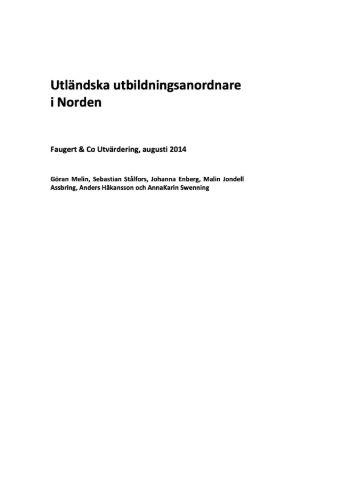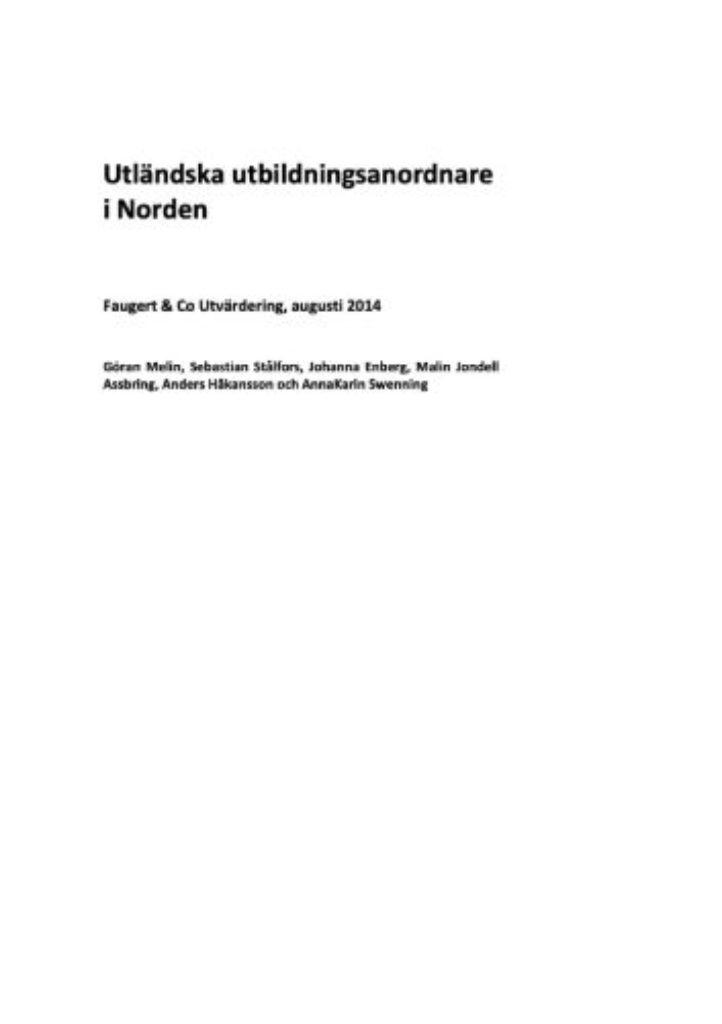Foreign education providers in the Nordic countries
Erscheinungsdatum: 1 August 2014 | Sprache der Studie: SV
For each Nordic country, Technopolis Group investigated the legislative conditions regarding the following:
- The countries’ legislation regarding foreign and transnational education providers
- National rules for accreditation of foreign education providers and who is responsible for making the accreditation
- The countries’ rules for monitoring and quality control of foreign education and who is responsible for this
- The countries’ work with foreign education providers’ role related to qualifications
- Which requirements or possibilities are in place for foreign education providers to follow the respective countries’ national legislation for instance regarding examination
The study also included a comparison of how authorities in the Nordic countries handle foreign education providers, including providers of Massive Online Open Courses (MOOCs), with respect to funding, recognition, and student loans. Technopolis Group noted any particular rules for students who take MOOCs or experience foreign distance education, especially those rules related to student loans or other forms of student support.
In conclusion, very few foreign education providers operate in the Nordics; in total five schools are established (three in Finland, one in Denmark and one in Sweden). There are no specific regulations for foreign education providers; anyone is free to establish higher education in the Nordic countries. However, in order to get governmental financial support, the school and its education porogrammes need to be evaluated and become accredited by national authorities, and this is a lengthy and demanding process. No foreign education providers have become accredited in the Nordic countries.


